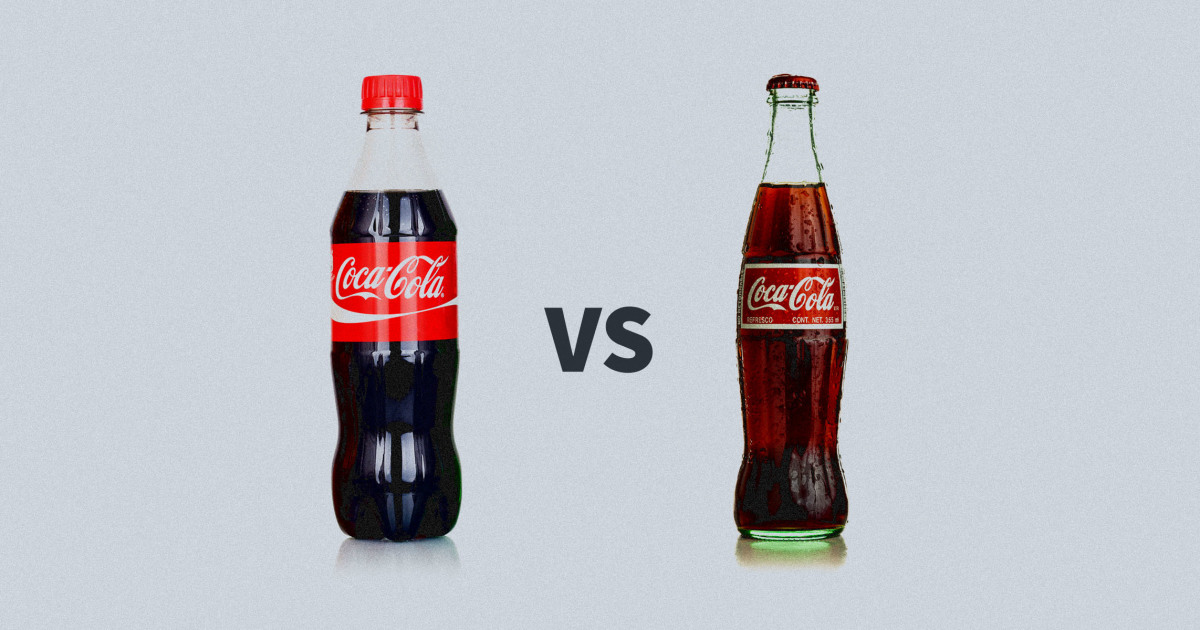Cane sugar is getting high praise over high-fructose corn syrup from some consumers. But is it really better or healthier than other sweeteners?
Coca-Cola has announced it will start offering a version of Coke in the U.S. sweetened with cane sugar instead of high-fructose corn syrup this fall.
The new addition “is designed to complement the company’s strong core portfolio and offer more choices across occasions and preferences,” the company said in a statement.
Health and Human Services Secretary Robert F. Kennedy Jr. has called high-fructose corn syrup “poison.”
But there are no health benefits for substituting cane sugar for high-fructose corn syrup, experts say.
“Sugar is sugar is sugar, whether it comes from cane sugar or high-fructose corn syrup or honey,” Angel Planells, a registered dietitian in Seattle and spokesperson for the Academy of Nutrition and Dietetics, tells TODAY.com.
“Our body processes them similarly. Overconsumption of any form can increase the risk of weight gain, Type 2 diabetes, heart disease or even dental problems.”
People should limit their intake of added sugar in general, no matter what form, says Marie-Pierre St-Onge, Ph.D., professor of nutritional medicine at Columbia University Institute of Human Nutrition.
“To me, making that change from high-fructose corn syrup to sugar cane, it’s just changing a sugar for a sugar. I don’t think it’s going to have a major impact on public health,” St-Onge tells TODAY.com.
How Is Cane Sugar Different From High Fructose Corn Syrup?
Cane sugar is made from sugar cane juice that’s concentrated and crystalized, according to the World Sugar Research Organisation. With more refining, cane sugar becomes granulated white sugar.
It’s also known as sucrose, a molecule made up of 50% glucose and 50% fructose.
High-fructose corn syrup is a liquid sweetener made from corn starch that’s turned into corn syrup and processed.
It’s also made up of glucose and fructose, but the version used to sweeten soft drinks contains 55% fructose, the U.S. Food and Drug Administration notes, so “the proportions are a little more skewed towards fructose” than in cane sugar, St-Onge says.
Soda companies switched to high-fructose corn syrup because it’s more economical than cane sugar, Planells explains.
Is Cane Sugar or High-Fructose Corn Syrup Worse for Health?
Both are added sugars that provide the same number of calories and raise blood glucose levels, St-Onge says.
She urges people to stop drinking sugary sodas in general since they’re empty calories. There are 39 grams of sugar in a 12-ounce can of Coca‑Cola, more than the American Heart Association’s recommended daily limits for added sugar.
But if a person is going to drink a cola anyways, choosing a product sweetened with cane sugar rather than high-fructose corn syrup is not a wiser choice, she adds.
“All added sugars, whether cane sugar or high-fructose corn syrup, can have negative effects on health such as weight gain,” says Dr. Marc Eisenberg, a clinical cardiologist at Columbia University Medical Center and co-author of “Am I Dying?!”
“(This) in turn can cause increase in one’s blood pressure, as well as diabetes and therefore heart disease and stroke.”
High-fructose corn syrup has a little extra fructose, which has been linked with fatty liver disease, increased triglyceride levels or insulin resistance, Planells says.
A 2022 review of studies found consumption of high-fructose corn syrup was linked with a higher level of inflammation compared to sucrose.
But the U.S. Food and Drug Administration says it’s “not aware of any evidence” that there’s a difference in safety between foods sweetened with high-fructose corn syrup and those containing similar amounts of sucrose, honey or other traditional sweeteners.
The American Medical Association says there’s “insufficient evidence” to restrict use of high-fructose corn syrup in food or to require warning labels.
Can You Taste the Difference Between Sugar and High-Fructose Corn Syrup?
While Coke sold in the U.S. is sweetened with high-fructose corn syrup, some social media users have been raving about the taste of the cane sugar version of Coca-Cola sold in Mexico.
“This is 10,000 times better,” one woman exclaimed on TikTok after trying Mexican Coke.
Planells says he can also taste the difference, calling the cane sugar version “more refreshing,” though he wonders whether the glass bottle that Mexican Coke comes in affects the taste perception.
When NBC News correspondent Gadi Schwartz and NBC News medical contributor Dr. Akshay Syal did a blind taste test comparing Mexican Coke with U.S. Coca-Cola sweetened with high-fructose corn syrup, they had a hard time telling them apart.
“I really can’t tell,” Schwartz said on NBC News Now.
Whether it’s cane sugar or high-fructose corn syrup, it’s still going to affect a person’s weight and risk of diabetes, Syal said.
He tells people the easiest way to cut calories from one’s diet is to stop drinking sugar.
“It’s going to hit your body really fast — your blood sugar levels are going to rise really quickly because there’s nothing to buffer that sugar,” he said.
What Is the Healthiest Sweetener?
The sugar in fruit comes with many other nutrients, like fiber, vitamins, minerals, antioxidants and plant compounds, says registered dietitian Natalie Rizzo, nutrition editor for TODAY.
Using fruit or 100% fruit juice to sweeten foods or drinks is a healthy sweetener, she notes.
Otherwise, all added sugar is very similar, Rizzo adds.
